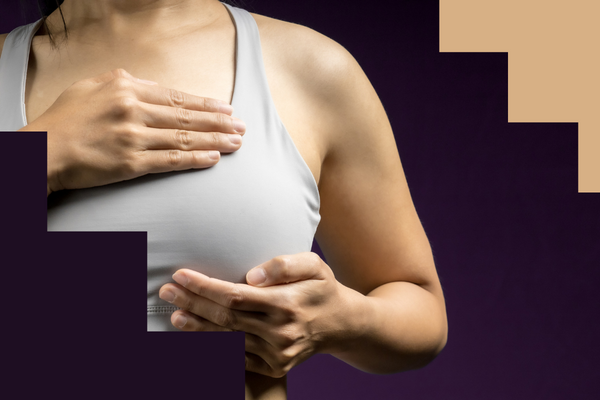Many view life as an uphill battle, believing and living like “aging” means less energy, an achy body, memory loss, etc. What if instead we viewed life as a constant and consistent opportunity to grow, to improve, and to THRIVE? To thrive in our relationship with ourselves – body and mind – just as we can thrive in relationships with others. We get one body and one mind– so why not give them the love and attention they deserve to grow?

Self-Monitoring
A thriving relationship is...
How would you define a thriving relationship? Google populates a variety of answers, all of which have the same underlying theme: growth, living life fully, trust, respect, and open communication. Research, as well as our own experiences, shows us what it takes to have a thriving relationship, and that which we have with ourselves requires no less. While our annual physicals are quite important, to thrive in life requires more than a single check up every year. So, what are some ways you can check in with yourself regularly? The following list highlights the same points you’d cover with your doctor, but regular “self-monitoring” can help you find questions or concerns to take to your doctor.
Monitor Biometrics
This one should come as no surprise. Just as we know that the extra 10 pounds from last year’s holiday season didn’t just “creep up” on you, our daily habits (whether healthy or not so healthy) create measurable results. Our weight (thus, also our BMI), blood pressure, and resting heart rate are all indicators that help us know our risk for heart disease, stroke, and type 2 diabetes. They are also measurements we don’t need someone else to take for us! At-home machines for measuring our weight and blood pressure are easily accessible. The Mayo Clinic shares simple instructions for measuring your resting heart rate, what to expect, and when to take your self-monitoring to the next level and consult a physician.
"Self-monitoring blood pressure is not only convenient for patients – it is superior to in-office blood pressure measurements for predicting cardiovascular events and is potentially cost-effective,"
Dr. Daichi Shimbo, associate professor of medicine at Columbia University Medical Center in New York and the statement's lead author.
Monitor Body
Hancock Regional Hospital in Indiana says it best: “Be creative, and be consistent, and contact a doctor if you find anything that worries you.” The perfect advice for performing regular self-exams. Do you set a monthly reminder to perform them all on the same day? Do you leave yourself a note on the mirror that it’s time to examine your skin/moles/freckles, breasts, testicles, etc? What about a checklist by your toothbrush so you’re aware of the health of your gums and teeth each time you brush? Like we mentioned above, your body provides indicators that can help you know your risk of heart disease, stroke, type 2 diabetes, cancer, and other chronic illnesses. Something else to think about, however, is that while these areas of your body might be fine now, what are lifestyle habits you can take on that will support continued health?
Monitor Behavior
Hancock Regional Hospital in Indiana says it best: “Be creative, and be consistent, and contact a doctor if you find anything that worries you.” The perfect advice for performing regular self-exams. Do you set a monthly reminder to perform them all on the same day? Do you leave yourself a note on the mirror that it’s time to review/examine your skin/moles/freckles, breasts, testicles, etc? What about a checklist by your toothbrush so you’re aware of the health of your gums and teeth each time you brush? Like we mentioned above, your body provides indicators that can help you know your risk of heart disease, stroke, type 2 diabetes, cancer, and other chronic illnesses. Something else to think about, however, is that while these areas of your body might be fine now, what are lifestyle habits you can take on that will support continued health?
Take Action
What if you could truly flip the script and thrive while aging? What would that look like to you? To have more energy, a strong body, a sharp mind? To be able to chase after the grandkids without having to stop to catch your breath? To be able to load the groceries in your car by yourself? Take a few minutes today and define what a thriving life looks like to you, touching on the three areas above: biometrics, body, and behavior.
Are you ready to take your relationship to the next level? Our Fall into Fitness 6-week program will help you change your habits before the holidays. Take the initiative for better health NOW!
